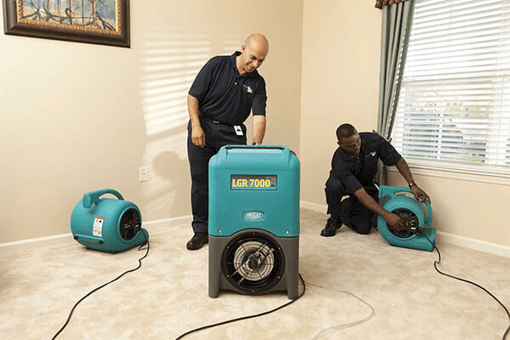Damage to your home can be an extremely overwhelming situation for any homeowner. It can also be very difficult to know what to do to properly handle the situation. Water damages are one of the most common homeowner's claims, so it's a good idea to keep a few common tips in the back of your mind in case you find yourself with unwanted water in your home.
1. FIRST STEPS
The very first thing you should do in the event of water damage is located the source of the water and ensure that the flow of water has been stopped. Cleanup can't happen if water is still actively pouring into the home. After the water has been stopped, it's a good idea to cut the power to the home if there is any standing water. Obviously, electricity and water can make a dangerous combination. If either of these tasks puts you at risk, wait for a professional. Finally, as long as it's safe, take as many pictures as possible before starting any potential DIY cleanup. You'll want to start cleaning right away if possible, but you'll also want your insurance company to be able to see the initial extent of the damage before any cleaning occurred. Once pictures have been taken and the area has been deemed safe, remove as much standing water as possible and set fans to begin the drying process.
2. CONSIDER VOLUME AND SOURCE
If you're thinking about trying to do the cleanup on your own, you'll want to consider the volume and the source of the water. A tiny patch of clean water is usually something that can be handled in-house, but a basement flooded with sewage needs to be handled by a professional. It's important to remember, though, that even small amounts of water can hide in cracks and crevices and within porous materials creating the perfect breeding ground for mold and mildew if not dried completely. As far as the source of water, if the water is grey or black, it should never be handled on your own. These waters contain contaminants that need to be properly cleaned to ensure the safety of the home and everyone in it.
3. CALL INSURANCE
If you've determined that the issue is beyond the scope of your abilities to handle, it's time to contact your insurance company. You'll want to find out what kind of coverage you have for the loss and what your deductible is. If you decide to file a claim, you'll be assigned an adjuster to handle it. Often your insurance company will put you in touch with a preferred restoration vendor, but sometimes they'll advise you to find one on your own.
4. CONTACT SERVICEMASTER RESTORE OF LYNCHBURG FOR SERVICE
If you have water damage, it's important to call a certified restoration professional quickly, as the damage can increase substantially if action isn't taken. ServiceMaster Restore of Lynchburg has years of experience and know-how to navigate through the crisis, resolve the damage and get your home back to normal.
Our water damage experts move in quickly to inspect the damage and clean up the mess before it can get worse.
- Remove and extract as much water as possible to prevent further mold and water damage using high-powered water extraction devices.
- Use air movers and dehumidifiers to dry and dehumidify the area and remove additional water
- Clean and sanitize the area
- Repair the damage

Our team of professional and certified technicians is on call 24/7 to help you recover from floods and unexpected water damage, including:
Water extraction
Structural drying
Floor drying
Structural dehumidification
Odor and stain removal

